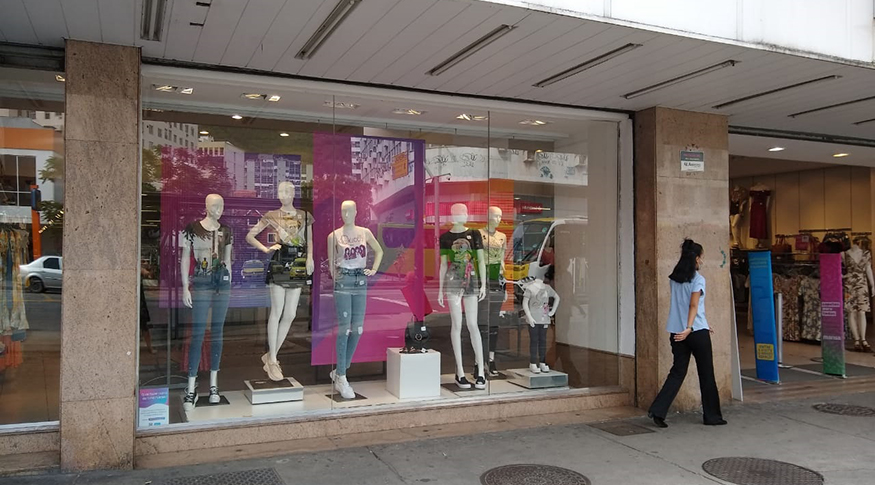Monthly Survey of Trade
Retail has a 3.8% increase in sales in January, a record for the month
April 12, 2023 09h00 AM | Last Updated: April 14, 2023 02h25 PM

Retail sales in the country grew 3.8% in January 2023, registering the highest change for the month since the beginning of the time series, in 2000. In comparison with January 2022, growth was 2.6%, the sixth consecutive positive in this index. In the cumulative indicator in the last 12 months, the high was 1.3%.
Data are from the Monthly Survey of Trade (PMC), released today (April 12) by the IBGE. This is the first release of the new survey series, which underwent updates in the selection of the sample of companies, adjustments in the weights of products and activities, in addition to methodological changes, to portray economic changes in society. These updates previously planned and periodically implemented by the IBGE.
The increase presented in January is also the largest for a month of July since 2021, when there was an increase of 3.9%. Cristiano Santos, survey manager, points out that each month has its specificity in the sector. But he points out that since September (1.1%) the volume of retail sales had not registered a high. “It's an important result, because trade was coming from negative results or stability,” he says. Thus, retail trade decreases the distance to the record level of the series (October 2020), which is now -2.9%.
The month's increase was spread across the surveyed activities, as seven out of eight showed growth in January. Highlight to the sector of textiles, clothing and footwear, which grew 27.9% after four months of decline. Another group that influenced the result of national retail was hypermarkets, supermarkets, food products, beverages and tobacco, with an increase of 2.3% after two months of decrease in sales volume. “Both sectors indicate recovery in January. From the December result, it is possible to consider that movements such as Black Friday and Christmas were not positive for both activities. With the previous drops and the lower base of comparison, there was an important growth in January, motivated mainly by post-Christmas initiatives”, explains Mr. Santos.
The only sector that recorded a drop in sales in January was pharmaceutical, medical, orthopedic and perfumery articles (-1.2%), which had already started a downward trend in December (-0.5%). “This movement was greatly influenced by cosmetics and perfumery, which continue to fall and have more sensitive changes, since medical and pharmaceutical articles tend to have a more stable trend”, says the researcher.
Extended retail changes 0.2% with “debut” of new activity
The PMC also investigates the sales volume of expanded retail trade, which changed by 0.2% compared to December 2022 and 0.5% against January 2022. This index, in addition to the eight surveyed activities, also includes the sectors of vehicles, motorcycles, parts and accessories; construction material and, the debuting wholesale group specialized in food, beverages and tobacco, included after the updates and changes announced by the IBGE in March. With the January result, extended retail trade reverses the downward trend recorded in the last two months (-1.4% in November and -0.6% in December 2022). The January index means that the national retail is 3.3% above the pre-pandemic level (from February 2020). But Cristiano Santos points out: "Although up, this index is not high, considering that it's been almost three years. And trade still has more activities below the pre-pandemic level. Six of them, actually are, as it is the case of extended retail , whose sales volume is 1.3% lower than in February 2020”, he concludes.
Increase in year-on-year comparison includes six of eight activities
Comparing January 2023 with January 2022, the 2.6% increase in sales volume includes six of the eight surveyed activities, with a highlight to Fuels and lubricants (26.7%), Books, newspapers, magazines and stationery ( 15.2%) and Office, computer and communication equipment and materials (14.8%). Only pharmaceutical, medical, orthopedic and perfumery articles (-7.6%) and other articles for personal and domestic use (-6.5%) had a negative rate in the interannual comparison. In extended retail trade, Vehicles, motorcycles, parts and pieces grew by 4.4% while construction material increased by 1.1%. Only the wholesale of food products, beverages and tobacco fell by 0.9%.
Most of the Federation Units registered an increase in January
In PMC's regional analysis, from December 2022 to January 2023 rise was recorded in sales volume in 23 of the 27 Federation Units, with a highlight to Espírito Santo (8.8%), Tocantins (8.7%) and Roraima (7.4%). Among the falls, the main influences were from Mato Grosso (-1.7%), Amapá (-1.6%) and Paraíba (-1.1%).
In extended retail trade, there was an increase in 18 Federation Units, with a highlight to: Sergipe (8.7%), Espírito Santo (6.6%) and Roraima (6.4%). Tocantins (-4.8%), Mato Grosso (-4.2%) and Pará (-3.0%).
More about the survey
The PMC produces indicators that make it possible to monitor the short-term behavior of retail trade in the country, investigating the gross revenue from resale in formally constituted companies, with 20 or more employed persons, and whose main activity is retail trade.
Started in 1995, the PMC brings monthly results of change in volume and nominal sales revenue for retail trade and extended retail trade (cars and construction materials) for Brazil and Federation Units. The results can be consulted on Sidra. - IBGE's database.




















